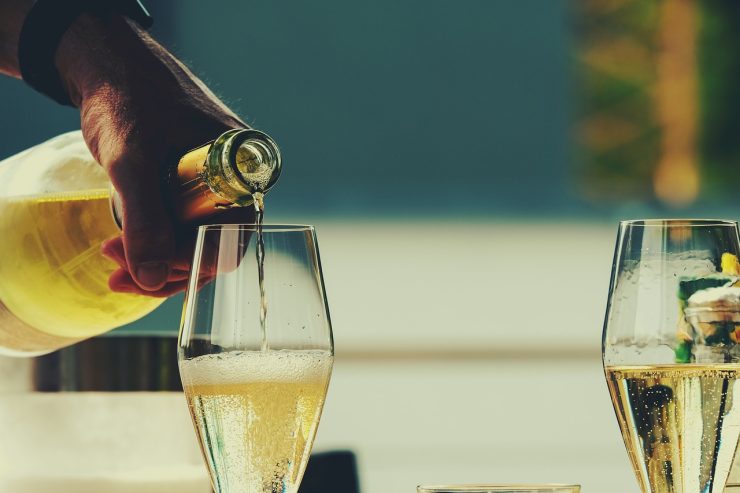Let’s be honest—alcohol use spiked this past year, and it’s not hard to see why. Between the pandemic, working from home, remote schooling, and just trying to stay sane, grabbing a drink started feeling like a small comfort in a really chaotic time.
No commute? No social plans? Why not crack open a beer at lunch or pour that extra glass of wine in the evening? There were no bars to hit, but the fridge was always just a few steps away. And hey—it’s way cheaper than ordering drinks out.
Sound familiar? Yeah, you’re not alone. A lot of us found ourselves slipping into a “happy hour starts whenever” routine without even realizing it.
According to a study in JAMA Network Open, alcohol consumption went up 14% between 2019 and 2020. But the really eye-opening stat? Heavy drinking among women jumped 41% in just one year. That’s four or more drinks in about two hours—a serious bump.
So what’s the big deal?
Let’s be real: alcohol doesn’t do your health any favors. Sure, it may feel relaxing in the moment, but behind the scenes, it’s messing with just about every major system in your body.
Here’s what alcohol does—starting with hormones:
-
In men, alcohol turns testosterone into estrogen. That means lower libido, erectile dysfunction, weight gain, and yes—man boobs.
-
In women, alcohol raises estrogen too. And if you’re in your late 30s, 40s, or 50s, you may already have more estrogen than your body needs. That can lead to estrogen dominance, which shows up as:
-
Heavy, painful periods
-
Weight gain (especially around hips and thighs)
-
Mood swings, anxiety, or depression
-
Endometriosis
-
Low sex drive
-
Higher risk for breast and uterine cancers
-
And if you’re on hormone replacement therapy, alcohol can boost estrogen by as much as 300%—while lowering progesterone. Translation: your HRT may stop working the way it’s supposed to, and you might gain weight or feel worse than before.
Oh, and if you’re dealing with menopause symptoms like hot flashes or night sweats? Alcohol will turn those up a few notches, too.
But it doesn’t stop with estrogen.
Alcohol increases cortisol, your stress hormone. More cortisol = more cravings, weight gain, insomnia, anxiety, high blood pressure, and blood sugar issues. It’s a recipe for burnout, inside and out.
It also messes with your thyroid. Alcohol can reduce your body’s ability to produce key thyroid hormones, leading to:
-
Fatigue
-
Brain fog
-
Hair loss
-
Depression
-
Weight gain
-
Low sex drive
And then there’s your sleep. Alcohol suppresses melatonin—the hormone that helps you sleep—and disrupts growth hormone, which your body needs to repair itself, build muscle, and even keep your skin looking younger.
So yeah, that nightly drink might help you relax short term—but long term, it throws your entire system out of whack.
The hidden cost of drinking
Alcohol doesn’t just mess with your hormones. It:
-
Makes you hungrier
-
Impairs your self-control (hello late-night snacks)
-
Contributes to gut issues by throwing off your microbiome
-
Adds to anxiety and depression
-
Drains your body of B vitamins, magnesium, and zinc
-
Dehydrates your skin and body
And while all of that sounds like a laundry list of reasons to never drink again—that’s not what this is about.
Let’s be honest. A drink now and then? Totally fine for most people. The goal here is to be mindful, not perfect. So let’s talk about how to drink less without feeling deprived.
How to cut back (and still enjoy your life)
-
Break the habit loop.
If you automatically reach for wine the second you clock out, try swapping in a new end-of-day ritual. Go for a walk, stretch, hit a quick yoga flow, play with the dog, or just sit outside and breathe. Create a new way to “unwind.” -
Find a low- or no-alcohol alternative.
Try sparkling water with a splash of kombucha and a lime wedge—it’s fun, refreshing, and feels like a treat. Or check out hard kombucha or low-alcohol seltzers, which typically have less booze than a glass of wine. -
Hydrate first.
A lot of times we’re not craving alcohol—we’re just thirsty. Drink a full glass of water before you drink anything else. And when you do pour a drink, have water alongside it. You’ll probably drink half as much without even noticing. -
Sip, don’t chug.
Choose a drink that forces you to slow down—like red wine, tequila neat, or a dry martini. Skip the sweet stuff that’s easy to guzzle. Make it about quality, not quantity. -
Find your accountability buddy.
Tell a close friend, your partner, or someone you trust that you’re trying to cut back. It helps to have support—especially if your usual social crew tends to go all in on drinks. Set yourself up for success by hanging out with people who respect your goals.
The takeaway?
Cutting back on alcohol isn’t about being perfect or swearing off wine forever. It’s about getting honest with yourself and being intentional. Alcohol has a bigger impact on your health than most people realize—especially when it comes to hormones, metabolism, mood, and aging.
If you’re drinking more than you want to, or if it’s starting to affect your relationships, energy, sleep, or health—it might be time to reassess. And if it feels hard to do on your own, there’s zero shame in getting support. Talk to a therapist, doctor, or reach out to a group. You’re not alone.
Here’s to making mindful choices—and feeling good while doing it. Cheers to you and your health!











